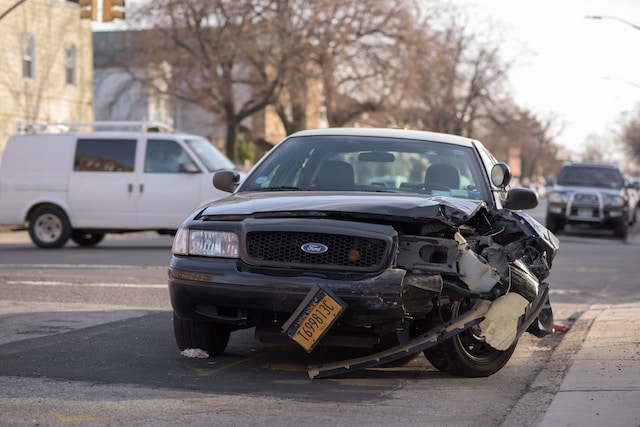Understanding the Role of Witnesses in Strengthening Your Personal Injury Lawsuit

Have you ever wondered how a simple bystander can turn into an invaluable asset in your personal injury case?
Witnesses, like unsung heroes, play a crucial role in bolstering the strength of your lawsuit. They hold the power to corroborate your side of the story, provide essential details, and ultimately shape the trajectory of justice.
In this blog post, we delve deep into understanding the indispensable role witnesses play in strengthening your personal injury lawsuit. Join us as we unravel their significance and shed light on how they can make all the difference between success and uncertainty in your legal battle for compensation.
What Makes a Good Witness?
A good witness is someone who can provide accurate and reliable testimony about what they saw or experienced. When working with injury attorneys to choose witnesses for your personal injury lawsuit, it is important to consider their credibility, character, and ability to communicate clearly.
Credibility refers to how believable a witness is. Factors that can affect credibility include whether the witness has any personal interest in the outcome of the case, whether they have any biases or prejudices, and whether they have firsthand knowledge of the events in question.
Character refers to a witness’s reputation for truthfulness and integrity. A witness with a good character is more likely to be believed by a jury than one with a bad character. The ability to communicate refers to a witness’s ability to clearly and effectively communicate their testimony.
Witnesses who are able to articulate what they saw or experienced in a clear and concise manner are more likely than those who are not to be believed by a jury.
When choosing witnesses for your personal injury lawsuit, it is important to consider all of these factors in order to choose those who will be most effective in helping you win your case.
Factors to Consider When Choosing Witnesses
When you’re ready to file a personal injury lawsuit, it’s important to choose witnesses wisely. Here are some factors to consider when making your selection:
- The witness must have seen the accident or event that caused your injuries.
- The witness should be able to describe what happened in detail.
- The witness should be objective and unbiased.
- The witness should be available to testify in court, if necessary.
- The witness should be credible and have no reason to lie about what happened.
Interviewing Your Witnesses
When it comes to your personal injury lawsuit, witnesses can play a critical role in helping to prove your case. In order to make the most of their testimony, it is important that you take the time to interview them thoroughly. Here are some tips for interviewing your witnesses:
- Prepare Ahead of Time: Before you interview your witnesses, it is important that you prepare ahead of time. This means familiarizing yourself with their statements and preparing questions that will help elicit the information you need.
- Be Professional: When conducting your interviews, it is important that you remain professional at all times. This means avoiding any type of confrontational or aggressive behavior.
- Listen Carefully: One of the most important aspects of interviewing your witnesses is listening carefully to what they have to say. This way, you can better understand their perspective and assess the value of their testimony.
- Ask Follow-Up Questions: If there are any points that are unclear or you want more information on, be sure to ask follow-up questions. This will help ensure that you have all the information you need from your witness.
By following these tips, you can maximize the value of your witnesses’ testimony and strengthen your personal injury lawsuit.
Different Types of Witnesses and Their Role in Strengthening Your Personal Injury Claim
There are many different types of witnesses that can be called upon to help support a personal injury claim. The type of witness will depend on the nature of the accident and the injuries sustained.
Eyewitnesses are perhaps the most useful type of witness in a personal injury claim. If there were people who saw the accident happen, their testimony can be very helpful in proving how the accident happened and who was at fault.
If there is video footage of the accident, this can also be used as evidence. This could be from security cameras or dashcams. This type of footage can be helpful in determining how the accident happened and who was at fault.
The victim’s family and friends can also be called witnesses to testify about how the accident has impacted the victim’s life. This type of testimony can help to show the jury the full extent of the victim’s damages.
Preparing Your Witnesses for Court
When you are preparing your witnesses for court, there are a few key things to keep in mind. First, it is important to make sure that your witnesses are aware of the importance of their testimony. This means that they should be prepared to answer questions truthfully and accurately.
It is also important to make sure that your witnesses are comfortable with testifying in front of a judge and jury. This can be accomplished by practicing their testimony in front of you or another trusted individual.
It is important to remind your witnesses that they should not discuss their testimony with anyone outside of the courtroom. This includes family, friends, and lawyers.
Conclusion
Witnesses are an important part of any personal injury lawsuit, as they provide valuable insight and evidence to help establish your case.
With the right preparation and strategy, you can use witnesses to strengthen your case in court and improve your chances of winning a favorable outcome.
It is therefore essential that you take the time to understand the role of witnesses in strengthening your personal injury lawsuit so that you can make sure that every detail is properly handled.




